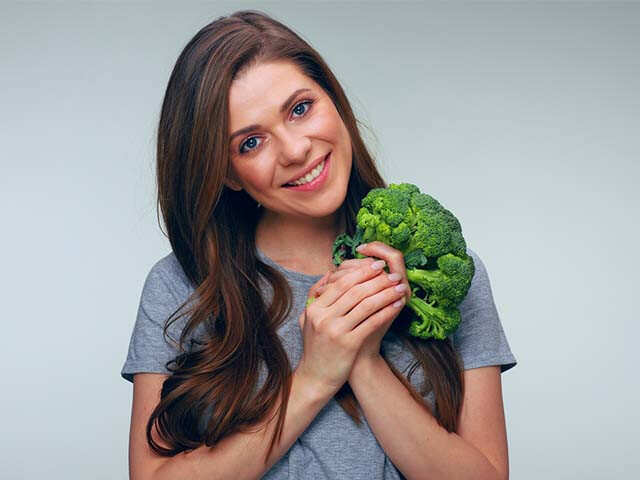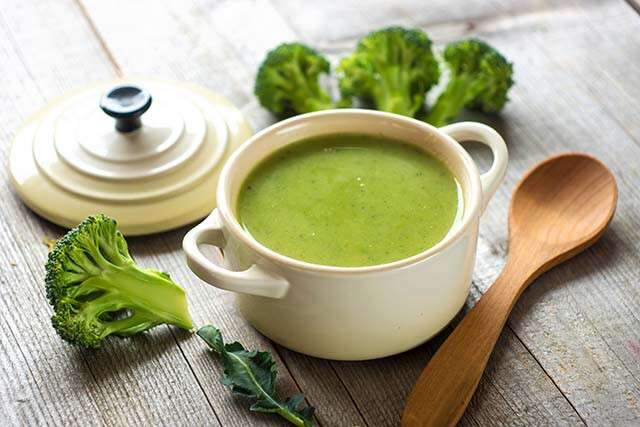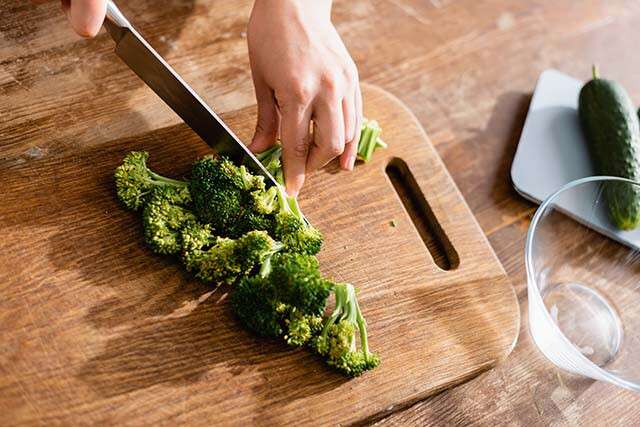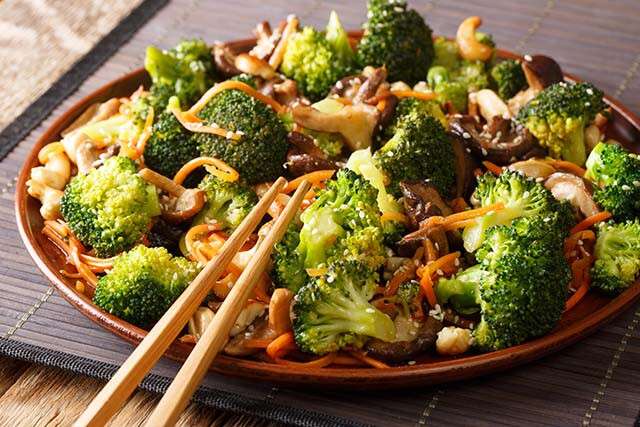
Image: Shutterstock
Easy to cook and good to eat, broccoli is quickly becoming a popular addition to the menu for a lot of people. Nutritionist Lovneet Batra says, “This cruciferous vegetable is rich in nutrients, fibre, and protein, and it’s remarkably versatile to prepare. You can eat it raw or steamed, incorporate it as an ingredient in various dishes, or have it roasted as a crunchy snack.” She helps us take a closer look at this bright green vegetable to understand why it’s known as a nutritional powerhouse.
Broccoli Is Rich In Antioxidants
Antioxidants help reduce inflammation in body cells, which protects tissues and organs from damage from certain chronic diseases or exposure to external environments. Inflammation may sometimes be the trigger point for the start of cancerous growth. Research shows that the antioxidants present in broccoli can potentially reduce cancer risk.

Image: Shutterstock
Broccoli Is An Excellent Source Of Vitamins
Studies show that one cup of broccoli contains as much vitamin C as a whole orange! Vitamin C plays a vital role in promoting healing throughout the body. It helps produce collagen, needed for healthy skin and bones. Vitamin C is also an immunity booster and enables you to heal quickly from common infections. Broccoli is also rich in vitamins A, D, E and K, and a range of vitamin B compounds like B12, B6, niacin and riboflavin, which help boost bone and muscle strength, prevent osteoporosis, and relieve pain and inflammation due to arthritis.
Broccoli Contains Minerals
Rich in calcium, iron, phosphorous and zinc, broccoli is a treasure trove of minerals and ions, which work together to keep the body functioning well. A cup of broccoli provides almost 5% of a person’s daily need for potassium. From improving blood production and maintaining haemoglobin levels to keeping bones strong, broccoli is great for overall health.

Image: Shutterstock
Broccoli Reduces The Risk Of Diabetes
Scientific research has shown that eating broccoli may help people who have type 2 diabetes control their sugar levels due to a compound in it called sulforaphane. This helps in reversing insulin resistance and slows down the rate of sugar absorption, providing a stable glucose supply over a longer period.
Broccoli Is Heart Healthy
It helps in lowering the bad LDL cholesterol and triglycerides while increasing the good HDL cholesterol. Antioxidants present in broccoli have shown to reduce overall risk of heart attack. High fibre foods like broccoli are anyway linked to a healthy cardiovascular system.
Broccoli Improves Digestion
Broccoli contains a lot of fibre that supports digestion and provides a fuel source for the healthy bacteria in our gut. It keeps bowel movements regular and keeps you fuller for longer, which could also help with weight loss.

Image: Shutterstock
Broccoli Has Anti-Ageing Properties
The process of ageing is progressively linked to oxidative stress and reduced metabolic function with passing years. While ageing is unavoidable, our dietary choices directly impact gene expression and have the capacity to slow down this biochemical process. The bioactive compounds present in broccoli can slow down mental decline and support brain health and proper nervous tissue function.
In conclusion, Batra says that the key to health is moderation. “Cruciferous vegetables are known to block the absorption of iodine. So, for people with underactive thyroid, caused by a deficiency of iodine in diet, overeating broccoli may worsen their condition. People with irritable bowels may also find the rich fibre challenging to digest, leading to bloating,” she cautions. Sharing additional tips, she says, “Steaming broccoli is usually the best way to preserve its nutrients. When buying broccoli, choose pieces that are tight and firm to the touch and dark green in colour. Avoid limp pieces, turning yellow, or wilting.”
Read more: Expert Busts Myths Related To Protein Intake And Deficiency